Affiliate Disclosure: As an Amazon Associate, I earn from qualifying purchases. I only recommend tools and brands I would use in my own workshop and have researched thoroughly for this guide.
As a tech professional and father of four who’s spent countless weekends on home projects, I’ve come to realize that choosing a power tool battery platform is a lot like picking a smartphone ecosystem. There’s no universally “best” choice – it all depends on how you plan to use your tools, where you shop, and what your budget looks like.
Having grown up building with LEGO and working with early computer systems, I appreciate how well-designed ecosystems work. The same principles apply to power tools: once you commit to a platform, you want it to grow with your needs and provide good value over time. With kids ranging from 5 to 11, I’ve also learned the importance of making practical decisions that work for busy family life.
After using various platforms across major home projects, here’s my honest breakdown of which battery systems work best for different types of users.
The Platform Decision: Why It Matters More Than You Think
Before we dive into specific brands, let’s talk about why this choice is so important. Your battery platform will likely determine your tool purchases for the next 10-15 years. Unlike smartphones where you can switch every few years, power tool investments tend to stick around.
The math is simple: if you start with a Milwaukee M18 drill, your next impact driver, circular saw, and reciprocating saw will probably all be Milwaukee too. Why? Because buying into a second platform means duplicate chargers, separate battery inventories, and much higher long-term costs.
For the Weekend Warrior: Ryobi ONE+ System
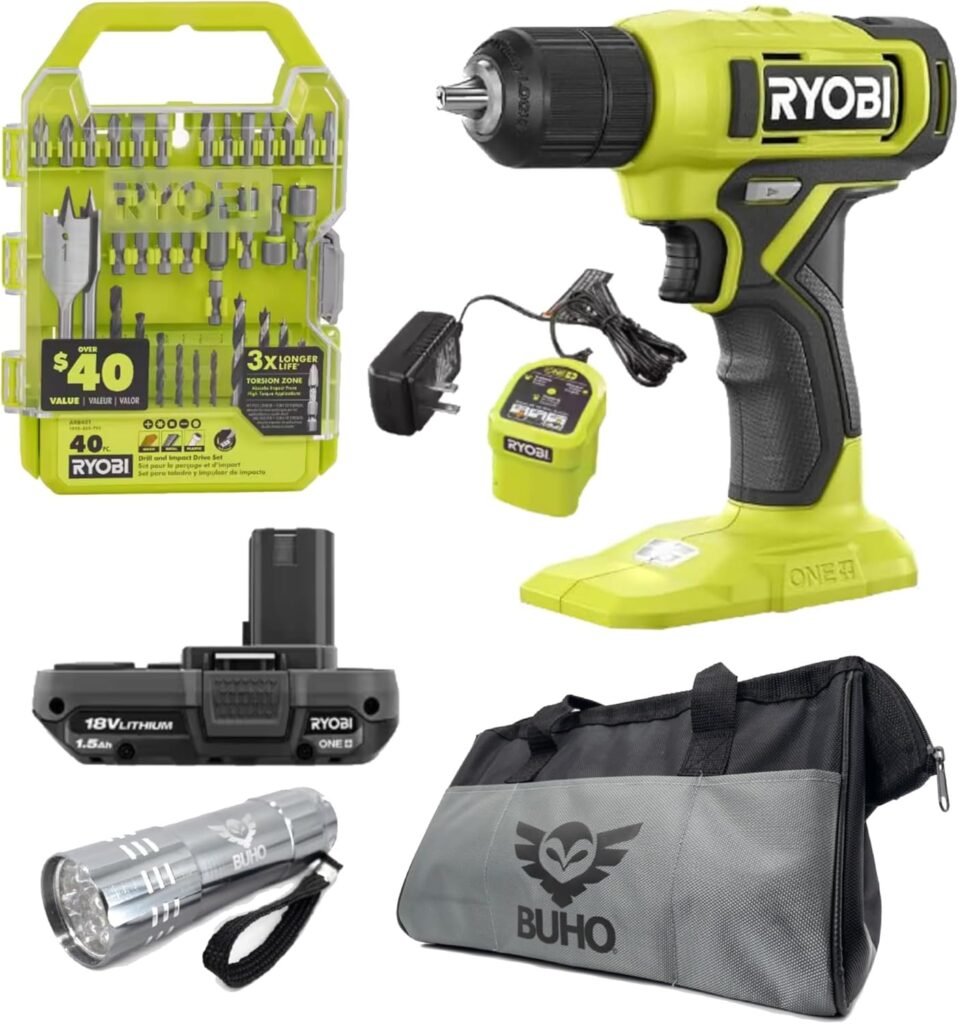
Best for: Occasional DIYers, budget-conscious buyers, Home Depot shoppers Price Range: Tools typically $50-150, batteries $40-80 Where to Buy: Home Depot (exclusive), Direct Tools Factory Outlet
If you’re the type who tackles a few projects per year and wants maximum versatility without breaking the bank, Ryobi’s ONE+ system is hard to beat. With over 280 tools using the same 18V battery, you can power everything from a drill to a leaf blower to even a portable fan for camping.
What impressed me most about Ryobi: The sheer range of tools. Need a tire inflator? They make one. Portable radio for the workshop? Covered. Power washer for the deck? Yep. This ecosystem thinking means you can solve problems you didn’t even know you had.
The trade-off: These aren’t the most powerful tools available, and if you’re using them daily for heavy work, you’ll notice the difference. But for typical homeowner tasks – hanging shelves, building a shed, seasonal yard work – they’re more than capable.
Smart buying strategy: Start with a drill/driver combo kit during one of Home Depot’s frequent sales, then add specialty tools as needs arise.
https://amzn.to/4lLMGMv (paid link)
For the Serious DIYer: DeWalt 20V MAX System
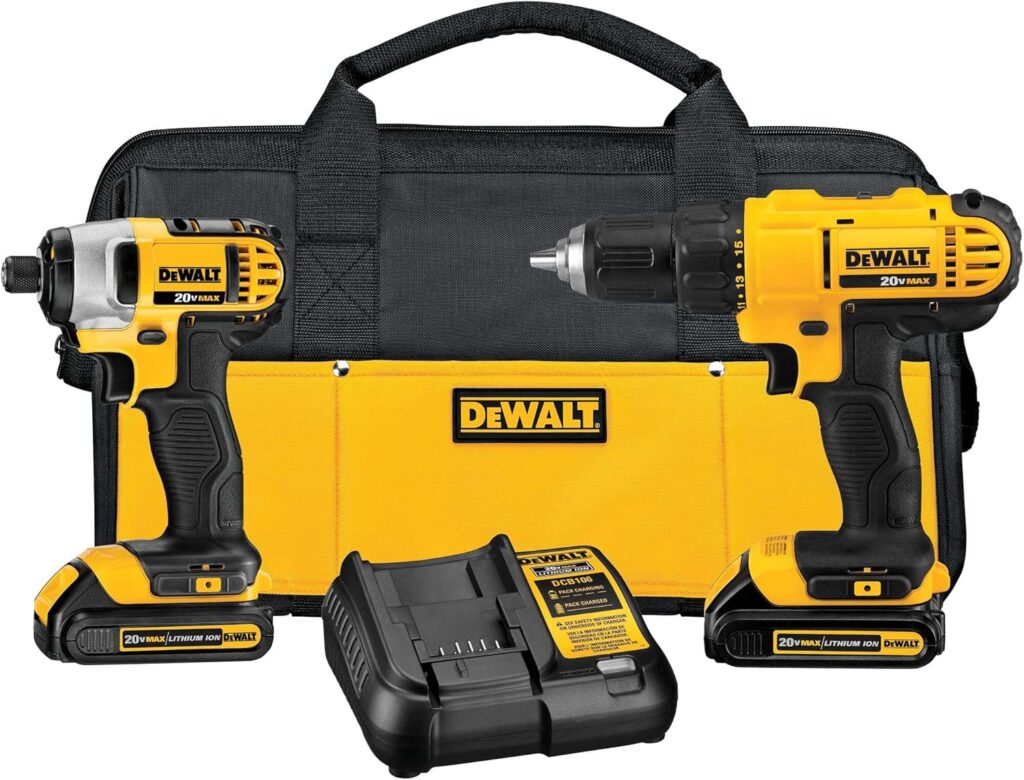
Best for: Regular weekend warriors, those who want pro-level performance, Lowe’s shoppers Price Range: Tools typically $100-300, batteries $60-150 Where to Buy: Lowe’s, Home Depot, most hardware stores
DeWalt hits the sweet spot between professional capability and reasonable pricing. Their 20V MAX system (which is actually 18V, but that’s a story for another day) offers excellent tool selection and the kind of durability that lets you tackle bigger projects with confidence.
What sets DeWalt apart: Their FlexVolt technology is genuinely clever. These batteries can work as either 20V or 60V depending on the tool, giving you upgrade paths for more demanding applications like table saws or miter saws without abandoning your existing battery investment.
Real-world experience: I’ve used DeWalt tools on major projects, and they consistently deliver professional-level results. The batteries hold their charge well, and the brushless motors in their newer tools provide impressive runtime.
Consider DeWalt if: You’re planning multiple substantial projects, want tools that can handle daily use, or anticipate moving into more advanced woodworking or construction tasks.
https://amzn.to/45Dqj7h (paid link)
For the Tool Enthusiast: Milwaukee M18 System
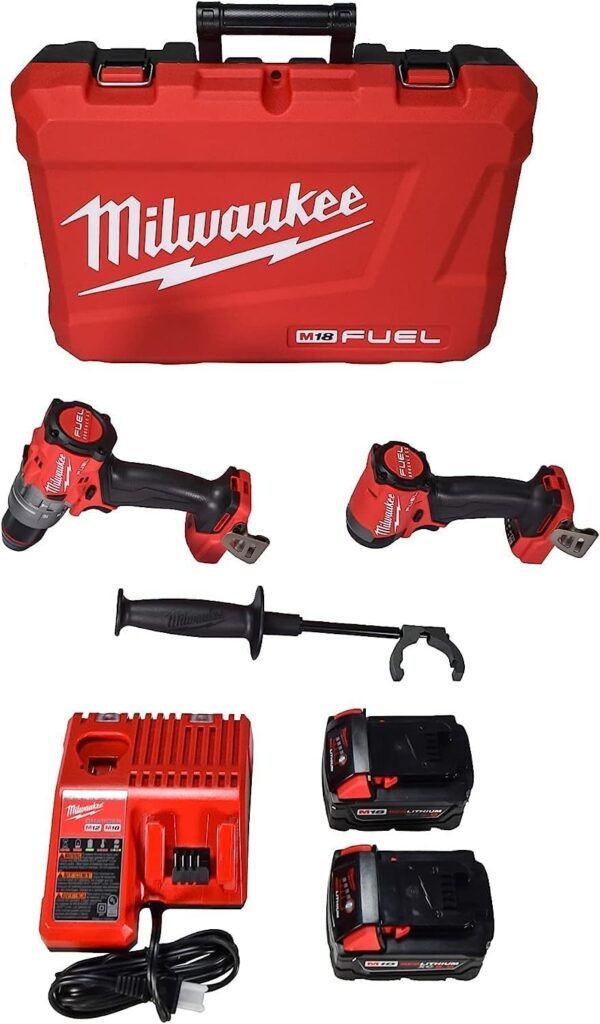
Best for: Serious DIYers, those who use tools frequently, anyone wanting cutting-edge technology Price Range: Tools typically $150-400, batteries $80-200 Where to Buy: Home Depot, specialty tool retailers
Milwaukee has built a reputation for innovation, and their M18 REDLITHIUM system shows why. These tools often feel like the premium option – more power, better ergonomics, and features that make work more efficient.
Milwaukee’s standout features: Their FUEL line with brushless motors delivers exceptional performance. Tools like their circular saw and reciprocating saw outperform many corded equivalents. The ONE-KEY technology on select tools lets you track, manage, and customize settings via smartphone – very cool for a tech person like me.
The premium experience: Milwaukee tools often include thoughtful details that make a difference during long work sessions – better balance, superior LED lights, tool-free adjustments. If you’re spending significant time with your tools, these refinements matter.
When Milwaukee makes sense: You’re planning extensive projects, use tools regularly, or simply want the satisfaction of owning premium equipment that will last decades.
https://amzn.to/4n5Uf1N (paid link)
For the Budget-Conscious Builder: Craftsman V20
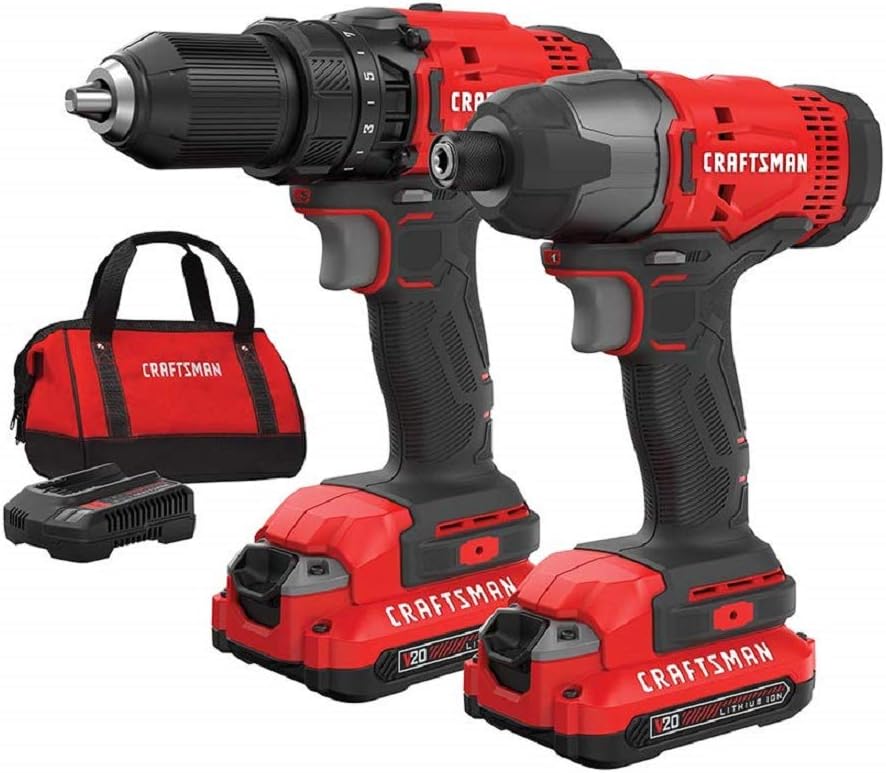
Best for: Cost-conscious buyers, those starting their first tool collection, Lowe’s shoppers Price Range: Tools typically $40-120, batteries $35-70 Where to Buy: Lowe’s (primary retailer), Ace Hardware
The revitalized Craftsman brand offers surprising value. Since Stanley Black & Decker took over, the quality has improved significantly while keeping prices competitive. Their V20 system covers most essential tools at prices that won’t shock your wallet.
Craftsman’s value proposition: You get decent performance at entry-level prices. These aren’t the most advanced tools available, but they’ll handle typical homeowner tasks reliably. The lifetime warranty on hand tools remains a nice touch.
Smart for starter collections: If you’re buying your first set of cordless tools or outfitting a teenager’s first apartment, Craftsman provides a solid foundation without the premium pricing.
https://amzn.to/3HIbZkN (paid link)
For the Professional-Minded: Makita 18V LXT
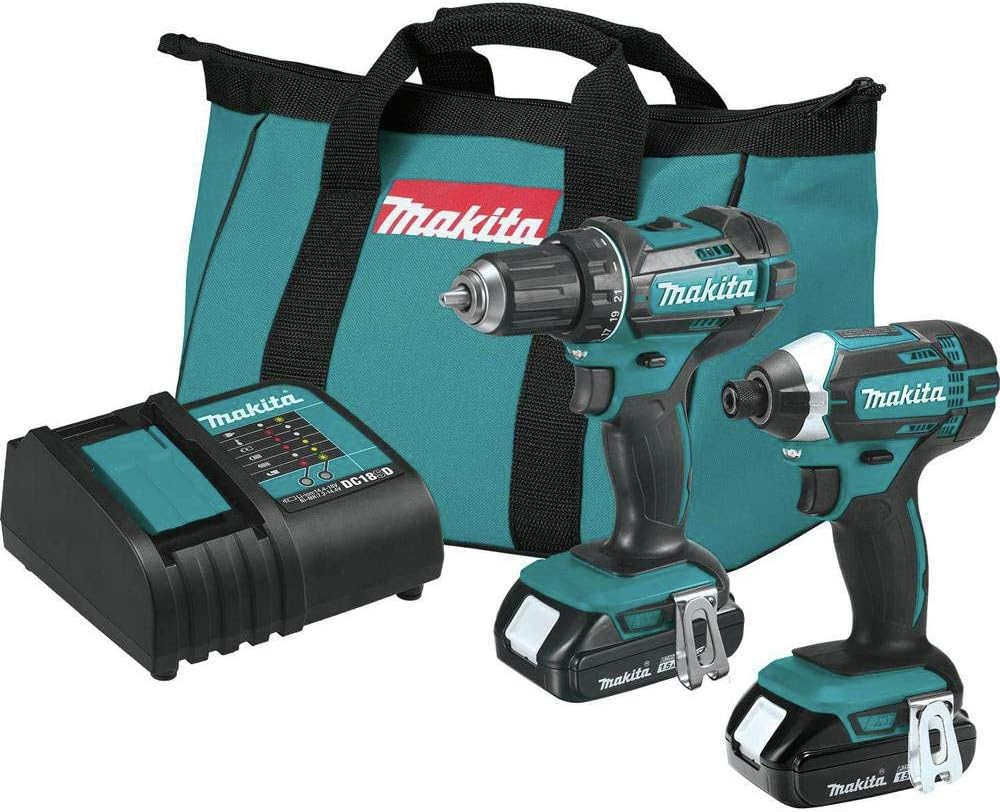
Best for: Serious woodworkers, those wanting maximum tool selection, users prioritizing ergonomics Price Range: Tools typically $120-350, batteries $70-180 Where to Buy: Home Depot, Lowe’s, specialty dealers
Makita’s LXT system is the world’s largest 18V platform with over 325 compatible tools. If you want options – and I mean lots of options – this ecosystem has you covered. From traditional power tools to specialized woodworking equipment, Makita probably makes it.
Makita’s strengths: Excellent build quality, superior ergonomics (especially important for extended use), and a tool selection that covers virtually any application. Their batteries are also known for longevity and consistent performance.
The consideration: Makita tools often carry premium pricing, and their newer 40V XGT system creates some confusion about future direction. But if you value tool variety and proven reliability, LXT remains compelling.
https://amzn.to/4oY8wPC (paid link)
Store-Specific Considerations
Your shopping preferences might influence your platform choice:
Home Depot loyalists: Ryobi ONE+ and Milwaukee M18 are your best bets, with frequent exclusive deals and the widest selection.
Lowe’s shoppers: DeWalt and Craftsman get priority placement and better promotional pricing.
Costco members: Watch for seasonal Milwaukee and DeWalt bundle deals that offer excellent value.
Online bargain hunters: All platforms are available online, but warranty and service support varies by retailer.
Making Your Decision: A Practical Framework
Here’s how I’d approach the choice today:
Start with your budget: Be honest about what you want to spend initially and over 3-5 years. Remember that batteries often cost $60-150 each.
Consider your projects: Occasional household repairs suggest different needs than regular workshop sessions or major renovations.
Think about tool variety: Do you want just the basics, or can you envision needing specialized tools like oscillating multi-tools, leaf blowers, or workshop equipment?
Evaluate your shopping habits: Sticking with stores where you already get good service and pricing makes life easier.
The Bottom Line: They’re All Pretty Good
Here’s the truth that tool reviewers don’t always emphasize: all the major platforms will handle typical DIY tasks just fine. The difference between a DeWalt drill and a Milwaukee drill matters less than having a reliable battery system that meets your needs and budget.
My recommendation: Pick the platform that best matches your shopping preferences and budget, then stick with it. Whether that’s Ryobi for maximum variety and value, DeWalt for balanced performance, or Milwaukee for premium features, you’ll be well-served.
The most important thing is making the commitment and building your collection thoughtfully. A complete set of tools from one ecosystem will serve you far better than a random collection of “best in class” individual tools from different brands.
What platform are you considering? I’d love to hear about your specific projects and help you think through the decision.
About the Author: My background in technology helps me evaluate tools from both performance and ecosystem perspectives, while parenting four kids keeps me grounded in practical, budget-conscious decisions.
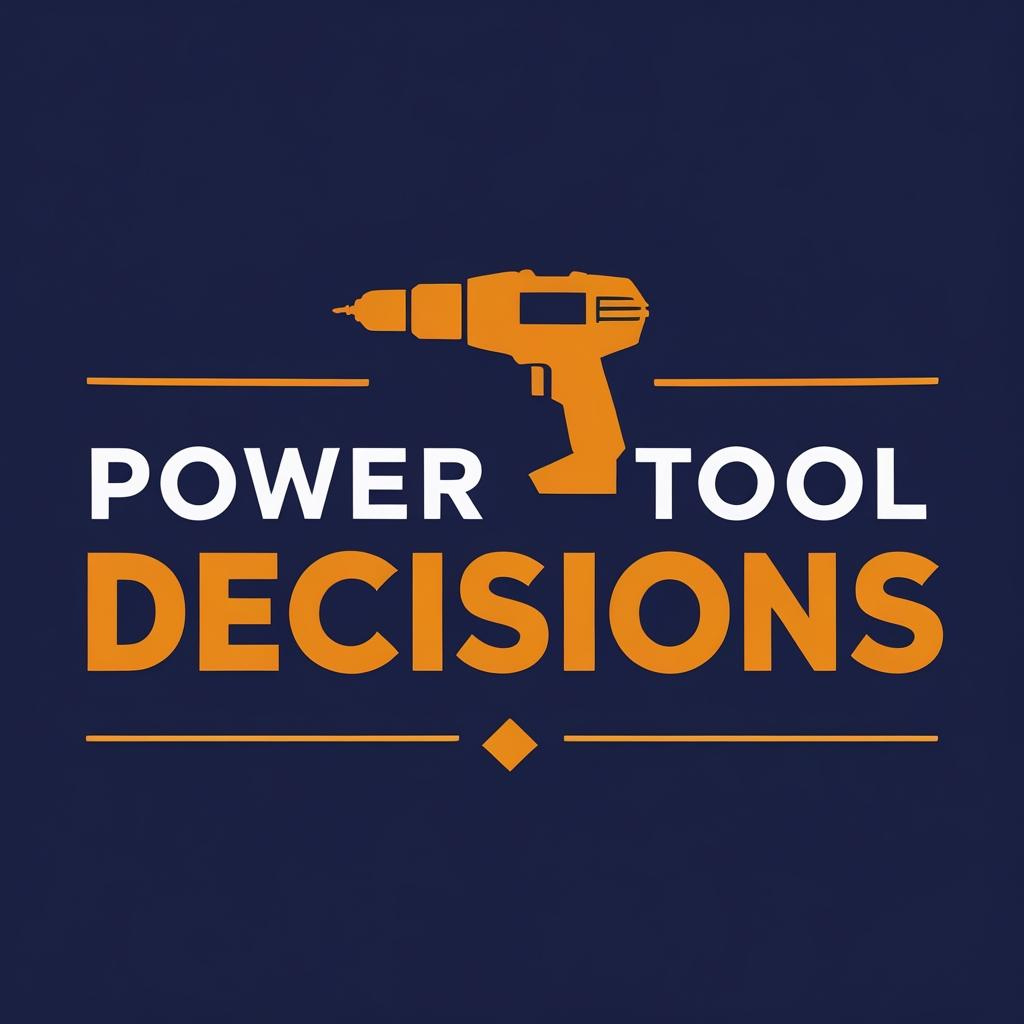
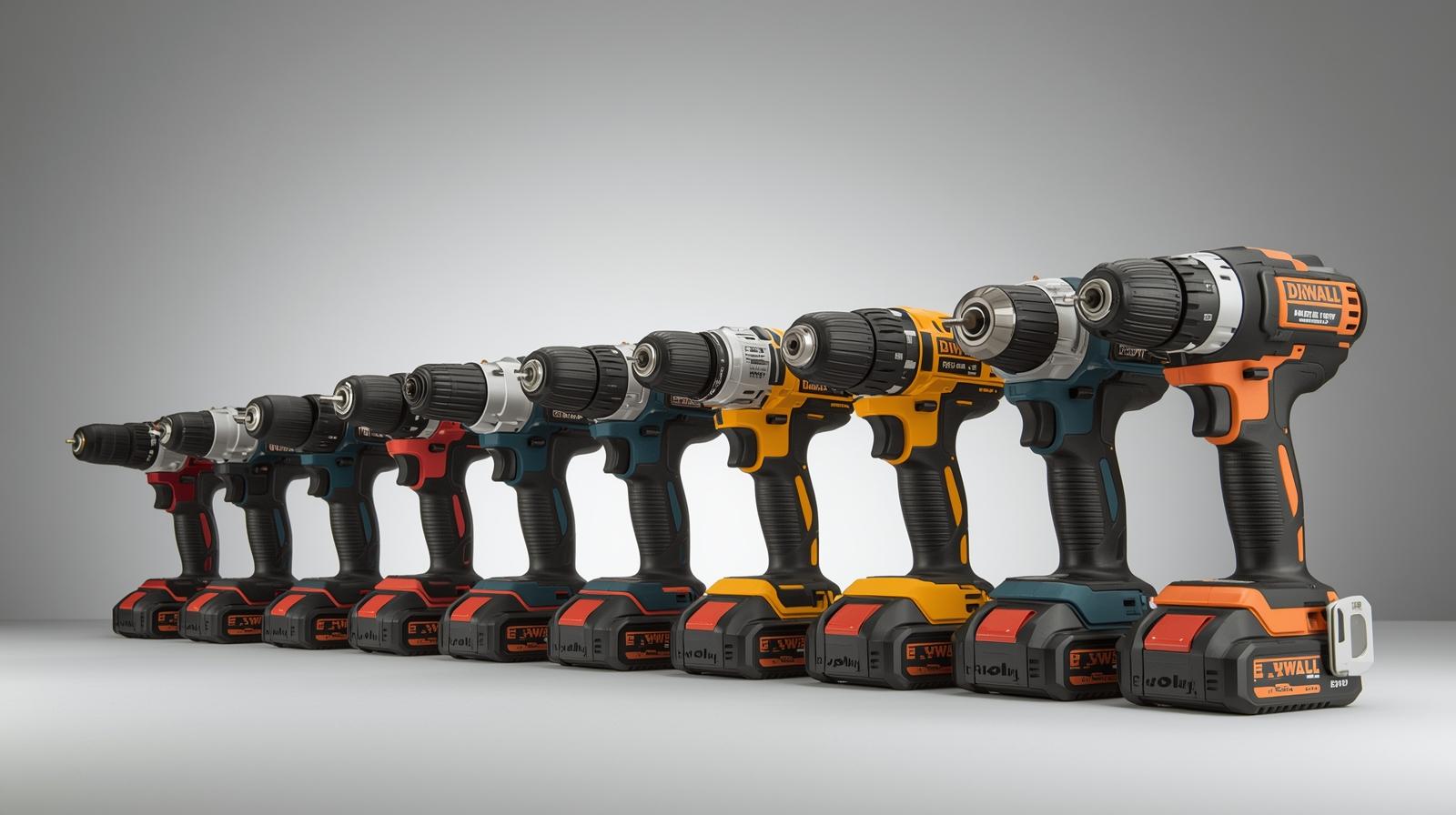
Leave a Reply